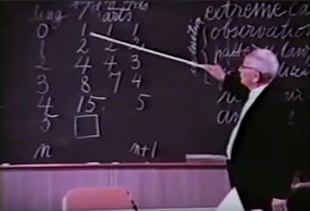A Short Writing Checklist for Students

A number of years ago I compiled a writing checklist for students. Its primary purpose was to make my life easier, but the list was meant to be helpful for the students as well. The checklist is here. My pet peeves: (1) abrupt changes of topic; (2) poorly designed figures; (3) tables and figures that are not described properly in…
read more





